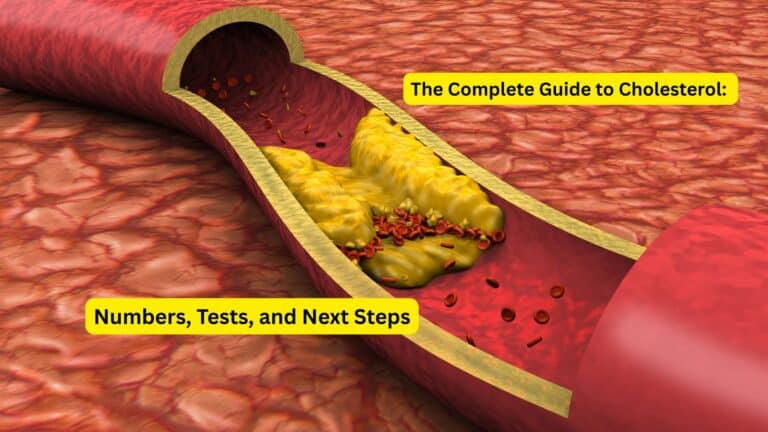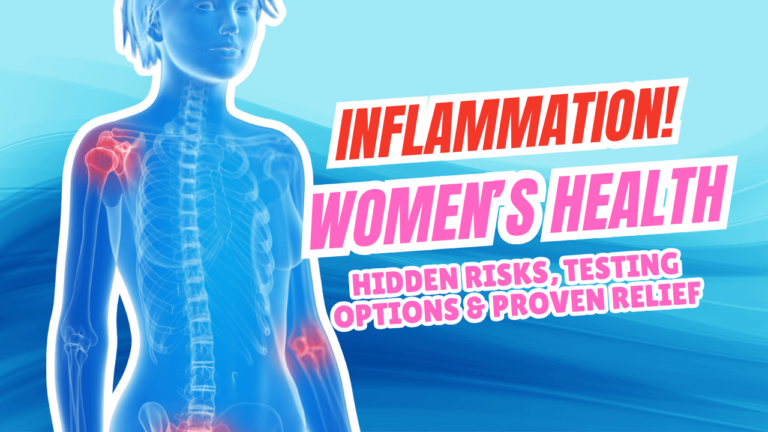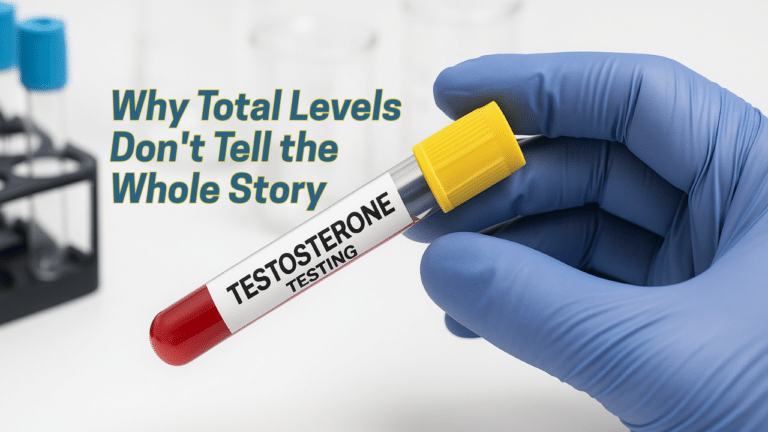Your dietary choices have a profound and direct impact on your liver’s health, influencing everything from fat accumulation and inflammation to the organ’s ability to process nutrients and eliminate toxins. As your body’s primary metabolic hub, the liver processes virtually every nutrient you consume, making it particularly susceptible to both the benefits of healthy eating and the harmful effects of poor dietary patterns.
Understanding the relationship between diet and liver health empowers you to make informed food choices that can prevent liver disease, support optimal liver function, and even reverse certain types of liver damage. This comprehensive guide explores which foods and dietary patterns protect your liver, which ones cause harm, and how emerging research is reshaping our approach to liver-healthy nutrition.
Why Diet Matters for Liver Health
The liver serves as your body’s primary nutrient processing center, making it uniquely positioned to be affected by every food choice you make. Unlike other organs that have more specialized functions, the liver must handle the complex task of metabolizing carbohydrates, fats, and proteins while simultaneously detoxifying harmful substances and producing essential proteins for your body.
Diet directly influences three critical aspects of liver health: fat accumulation within liver cells, levels of inflammation throughout the organ, and oxidative stress that can damage liver tissue over time. When you consume excess calories, particularly from refined sugars and unhealthy fats, the liver converts these nutrients into fat that can accumulate within liver cells, leading to fatty liver disease. Poor dietary choices also promote inflammation and oxidative stress, creating an environment where liver damage can progress from simple fat accumulation to more serious conditions like liver fibrosis and cirrhosis.
The liver’s central role in metabolism means that dietary patterns affect not just the organ itself, but also influence how well the liver can support other body systems. A healthy diet provides the liver with the nutrients it needs to function optimally while minimizing the burden of processing harmful substances. Conversely, poor dietary choices can overwhelm the liver’s capacity to maintain normal function, leading to a cascade of metabolic problems that extend far beyond the liver itself.
Best Diets and Foods for Liver Health
Research consistently demonstrates that certain dietary patterns and specific foods can significantly improve liver health, reduce inflammation, and prevent the progression of liver disease. These evidence-based nutritional approaches offer practical strategies for supporting optimal liver function throughout your life.
Mediterranean Diet
The Mediterranean diet stands out as one of the most thoroughly researched and effective dietary approaches for liver health. This eating pattern improves liver steatosis, reduces inflammation, and emphasizes olive oil, whole grains, fish, and vegetables, creating an ideal nutritional environment for liver wellness and recovery.
Studies have shown that following a Mediterranean diet can lead to significant reductions in liver fat content, improvements in liver enzyme levels, and decreased markers of inflammation throughout the body. The diet’s emphasis on whole, minimally processed foods provides the liver with essential nutrients while avoiding the harmful effects of industrial food processing.
Clinical trials demonstrate that adults following a Mediterranean diet experience measurable improvements in liver health markers, including reductions in body mass index, liver enzymes like ALT and AST, and inflammatory markers. These improvements often occur within just a few months of dietary changes, highlighting the liver’s remarkable ability to respond positively to better nutrition.
Antioxidant-Rich Foods
Colorful fruits and vegetables provide powerful antioxidants that protect liver cells from oxidative damage and support the organ’s natural detoxification processes. Berries, leafy greens, citrus fruits, and cruciferous vegetables like broccoli and Brussels sprouts contain compounds that help neutralize harmful free radicals and reduce inflammation within the liver.
These antioxidant-rich foods also support the liver’s production of glutathione, one of the body’s most important natural detoxification compounds. Foods high in sulfur compounds, such as garlic, onions, and cruciferous vegetables, are particularly beneficial for supporting glutathione production and enhancing the liver’s ability to process toxins.
Legumes, including beans, lentils, and chickpeas, provide both antioxidants and fiber that support liver health through multiple mechanisms. The fiber in these foods helps promote healthy gut bacteria, which in turn supports liver function through the gut-liver axis, while their antioxidant content helps protect liver cells from damage.
Healthy Fats
Not all fats affect the liver equally, and choosing the right types of dietary fats can significantly improve liver health. Omega-3 fatty acids from fatty fish, nuts, and olive oil with polyphenols improve liver enzymes and reduce liver fat, making these foods essential components of a liver-healthy diet.
Fatty fish such as salmon, mackerel, sardines, and anchovies provide EPA and DHA, two types of omega-3 fatty acids that have been shown to reduce liver inflammation and improve insulin sensitivity. These beneficial fats help counteract the harmful effects of excessive omega-6 fatty acids commonly found in processed foods and vegetable oils.
Extra virgin olive oil deserves special recognition for its liver-protective properties. Beyond its healthy monounsaturated fats, olive oil contains polyphenols and other bioactive compounds that have been shown to reduce liver fat accumulation and improve liver enzyme levels. The quality of olive oil matters, with extra virgin varieties containing higher levels of beneficial compounds compared to refined olive oils.
Whole Foods and Fiber
Whole grains, fruits, vegetables, and legumes provide essential fiber that supports liver health through multiple pathways. Fiber promotes the growth of beneficial gut bacteria that produce short-chain fatty acids, which help reduce liver inflammation and support healthy metabolism. This connection between gut health and liver function, known as the gut-liver axis, highlights how dietary fiber indirectly supports liver wellness.
High-fiber foods also help regulate blood sugar levels and insulin sensitivity, reducing the burden on the liver to process excess glucose. When blood sugar remains stable, the liver doesn’t need to work as hard to convert excess glucose into fat, helping prevent fatty liver disease development.
Plant-based foods rich in fiber also tend to be high in vitamins, minerals, and phytonutrients that directly support liver function. These compounds help optimize the liver’s detoxification pathways and provide the cofactors needed for proper enzyme function.
Foods and Diet Patterns That Harm the Liver
While certain foods support liver health, others can significantly damage this vital organ and promote the development of liver disease. Understanding which foods and dietary patterns to limit or avoid is just as important as knowing which ones to include in your diet.
Sugary Drinks and Industrial Fructose
Sugar-sweetened beverages represent one of the most harmful dietary choices for liver health, particularly those containing high-fructose corn syrup. Industrial fructose drives fat synthesis and fibrosis in the liver, creating a direct pathway to fatty liver disease and its more serious complications.
Unlike glucose, which can be metabolized by all cells in the body, fructose is processed almost exclusively by the liver. When consumed in large amounts, particularly from processed sources, fructose overwhelms the liver’s normal metabolic pathways and gets converted directly into fat through a process called de novo lipogenesis. This fat then accumulates within liver cells, leading to fatty liver disease.
The problem is compounded by the fact that fructose doesn’t trigger the same satiety signals as other nutrients, making it easy to consume excessive amounts without feeling full. Regular consumption of sugary drinks, fruit juices with added sugars, and processed foods containing high-fructose corn syrup can quickly lead to liver fat accumulation and metabolic dysfunction.
It’s important to note that naturally occurring fructose in whole fruits doesn’t have the same harmful effects, as it comes packaged with fiber, antioxidants, and other beneficial compounds that moderate its absorption and processing.
Red and Processed Meats
Regular consumption of red and processed meats has been linked to increased risk of fatty liver disease and insulin resistance. These foods tend to be high in saturated fats, which can promote inflammation and liver fat accumulation when consumed in excess. Processed meats also contain preservatives and additives that may contribute to oxidative stress and liver damage.
The cooking methods commonly used for red meats, particularly grilling and frying at high temperatures, can create harmful compounds that place additional stress on the liver’s detoxification systems. These advanced glycation end products (AGEs) and heterocyclic amines require significant liver processing and can contribute to inflammation and cellular damage.
Studies suggest that people who consume higher amounts of red and processed meats have elevated liver enzymes and increased rates of fatty liver disease compared to those who limit these foods and choose lean proteins like fish, poultry, and plant-based options.
Fast Foods and Saturated Fats
The typical Western diet, characterized by frequent consumption of fast food, fried foods, and foods high in saturated fats, creates an ideal environment for liver damage and disease progression. These foods tend to be calorie-dense but nutrient-poor, leading to weight gain and metabolic dysfunction that directly impacts liver health.
Fast food consumption has been specifically linked to excessive liver fat accumulation and worsened liver injury markers. The combination of refined carbohydrates, unhealthy fats, and high sodium content in these foods creates multiple pathways for liver damage, including inflammation, oxidative stress, and insulin resistance.
Trans fats, though now banned in many processed foods, may still be present in some products and are particularly harmful to liver health. Even small amounts of trans fats can promote inflammation and interfere with normal liver metabolism.
Processed Snacks and Refined Carbohydrates
Highly processed snack foods, white bread, pastries, and other refined carbohydrates cause rapid spikes in blood sugar that force the liver to work harder to process excess glucose. When consumed regularly, these foods can lead to insulin resistance, a condition where the body’s cells become less responsive to insulin, forcing the liver to produce and store more fat.
The lack of fiber and nutrients in processed foods means they provide calories without supporting the liver’s nutritional needs. These empty calories contribute to weight gain and metabolic dysfunction while failing to provide the vitamins, minerals, and antioxidants that the liver needs to function optimally.
Regular consumption of processed snacks and refined carbohydrates also promotes inflammation throughout the body, including in the liver. This chronic inflammatory state can accelerate the progression from simple fatty liver to more serious conditions like liver fibrosis and cirrhosis.
Special Diet Approaches and New Research
Emerging research is revealing new insights into how specific dietary approaches and eating patterns can optimize liver health. These innovative strategies go beyond traditional nutritional advice to explore how timing, personalization, and the gut-liver connection influence liver function.
Intermittent Fasting and Calorie Restriction
Recent studies have shown that intermittent fasting and controlled calorie restriction can produce significant improvements in liver fat content and metabolic markers. These approaches appear to trigger cellular repair processes in the liver while reducing the overall metabolic burden on the organ. Time-restricted eating patterns may help optimize the liver’s natural rhythms and improve its efficiency in processing nutrients and eliminating toxins.
Different forms of intermittent fasting, from alternate day fasting to time-restricted eating windows, have shown promise in reducing liver fat and improving insulin sensitivity. However, these approaches should be undertaken with medical supervision, particularly for individuals with existing health conditions or those taking medications that require regular food intake.
Calorie restriction, even without specific timing restrictions, has consistently shown benefits for liver health when combined with appropriate nutrient density. The key is reducing overall caloric intake while maintaining adequate protein, vitamins, and minerals to support liver function and regeneration.
Gut-Liver Axis
The connection between gut health and liver function has emerged as a crucial factor in liver disease prevention and management. Diet shapes the gut microbiota, which in turn influences liver inflammation and metabolic function through various signaling pathways and metabolite production.
A diverse, plant-rich diet promotes beneficial gut bacteria that produce short-chain fatty acids and other compounds that support liver health. These microbial metabolites help regulate inflammation, improve insulin sensitivity, and support the liver’s natural detoxification processes.
Conversely, diets high in processed foods and low in fiber can promote harmful gut bacteria that produce toxins and inflammatory compounds that directly damage the liver. This understanding has led to increased interest in prebiotics, probiotics, and targeted dietary interventions that support both gut and liver health simultaneously.
Personalized Nutrition
Emerging research suggests that individual genetic variations and gut microbiome composition may influence how people respond to different dietary approaches for liver health. This personalized nutrition approach recognizes that optimal dietary strategies may vary between individuals based on their unique biological characteristics.
Genetic variations in enzymes involved in fat metabolism, detoxification, and inflammation can affect how different people respond to specific foods and nutrients. Understanding these individual differences may help tailor dietary recommendations for maximum liver health benefits.
Similarly, the composition of an individual’s gut microbiome can influence how dietary nutrients are processed and how they affect liver function. As testing for genetic variants and microbiome analysis becomes more accessible, personalized nutrition approaches for liver health are likely to become more refined and effective.
Practical Tips for Supporting Liver Health Through Diet
Implementing liver-healthy dietary changes doesn’t require dramatic lifestyle overhauls, but rather thoughtful modifications that can be sustained long-term. The most effective approaches combine evidence-based nutritional strategies with practical implementation that fits into your daily routine and preferences.
Start by adopting a Mediterranean-style eating pattern that emphasizes whole, minimally processed foods. Build your meals around vegetables, fruits, whole grains, legumes, nuts, seeds, and fatty fish, while using extra virgin olive oil as your primary cooking fat. This approach provides the liver with essential nutrients while minimizing exposure to harmful processed ingredients.
Prioritize hydration with water throughout the day, as adequate fluid intake supports the liver’s detoxification processes and helps transport nutrients and waste products efficiently. Limit or eliminate sugary beverages, particularly those containing high-fructose corn syrup, as these drinks provide no nutritional value while significantly burdening liver metabolism.
Choose lean proteins like fish, poultry, legumes, and plant-based options while limiting red and processed meats. When you do consume meat, opt for grass-fed, organic varieties when possible and use gentle cooking methods like baking, steaming, or light sautéing rather than high-temperature grilling or frying.
Incorporate regular physical activity alongside dietary changes, as exercise enhances the liver benefits of healthy eating. Even moderate activity like brisk walking can improve insulin sensitivity and help the liver process nutrients more efficiently.
Monitor your progress by using Walk-In Lab’s comprehensive liver function tests to track how dietary changes affect your liver health over time. Regular testing of liver enzymes like ALT, AST, and GGT, along with markers like bilirubin and albumin, can provide objective evidence of improvement and help motivate continued healthy choices.
Frequently Asked Questions
What foods are best for liver health?
The best foods for liver health include fatty fish rich in omega-3 fatty acids (salmon, mackerel, sardines), colorful fruits and vegetables high in antioxidants, whole grains, legumes, nuts, seeds, and extra virgin olive oil. These foods provide essential nutrients that support liver function while reducing inflammation and oxidative stress. The Mediterranean diet, which emphasizes these foods, has been shown to significantly improve liver fat content and enzyme levels in clinical studies.
Which foods should be avoided to protect the liver?
Foods that harm liver health include sugary beverages (especially those with high-fructose corn syrup), processed and red meats, fried and fast foods, refined carbohydrates like white bread and pastries, and highly processed snacks. These foods promote liver fat accumulation, inflammation, and oxidative stress while providing little nutritional value. Industrial fructose is particularly harmful because it’s processed almost exclusively by the liver and directly contributes to fat synthesis within liver cells.
How does fructose affect the liver?
Industrial fructose, particularly from high-fructose corn syrup found in many processed foods and beverages, is metabolized almost exclusively by the liver and can overwhelm normal metabolic pathways. When consumed in excess, fructose is converted directly into fat through a process called de novo lipogenesis, leading to fat accumulation in liver cells. This process also promotes inflammation and can contribute to liver fibrosis over time. However, naturally occurring fructose in whole fruits appears less harmful due to the presence of fiber and antioxidants that moderate its absorption and processing.
Is the Mediterranean diet good for liver health?
Yes, the Mediterranean diet is exceptionally beneficial for liver health and has been extensively studied for its protective effects. This eating pattern reduces liver fat content, improves liver enzyme levels, and decreases inflammation markers. The diet’s emphasis on olive oil, fish, vegetables, fruits, whole grains, and legumes provides optimal nutrition for liver function while limiting foods that promote liver damage. Clinical studies consistently show that people following a Mediterranean diet have better liver health outcomes compared to those following typical Western diets.
Can dietary changes reverse fatty liver disease?
Yes, dietary changes can often reverse fatty liver disease, particularly in its early stages. Studies have shown that significant liver fat reduction and improved liver enzyme levels can occur with sustained dietary improvements, especially when combined with weight loss and regular physical activity. The liver’s remarkable regenerative capacity means that removing harmful dietary factors and providing optimal nutrition can allow liver cells to heal and restore normal function. However, the extent of reversibility depends on the severity of damage and how quickly interventions are implemented.
Conclusion
The connection between diet and liver health represents one of the most powerful tools you have for preventing liver disease and supporting optimal liver function throughout your life. Evidence consistently shows that dietary patterns rich in whole foods, healthy fats, and antioxidants can protect the liver from damage while promoting healing and regeneration.
Understanding which foods support liver health—such as those emphasized in the Mediterranean diet—and which foods contribute to liver damage empowers you to make informed choices that directly benefit this vital organ. The liver’s remarkable ability to respond to positive dietary changes means that it’s never too late to start supporting your liver health through better nutrition.
Take control of your liver health today by implementing liver-friendly dietary changes and monitoring your progress with comprehensive liver function testing. Walk-In Lab’s convenient, affordable liver health panels can help you track how your dietary improvements are affecting your liver function, providing motivation and guidance for continued healthy choices.
This article is for informational purposes only and is not intended as medical advice. Always consult with healthcare professionals for personalized medical guidance and before making decisions about your health.






